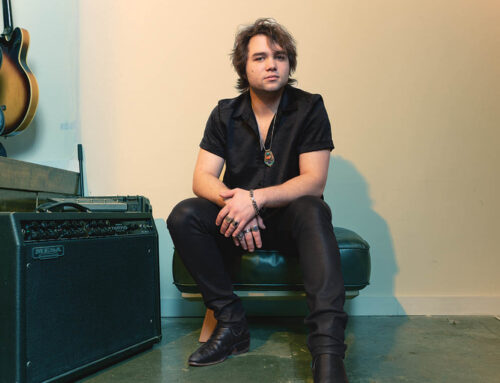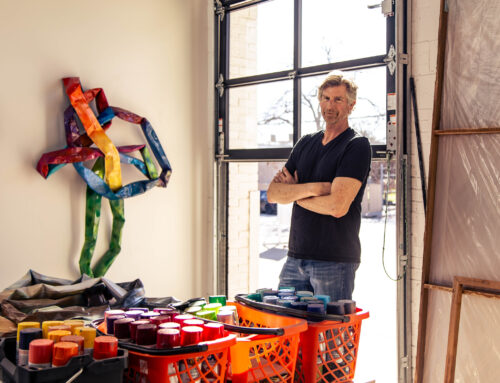NAME: Edward Juarez
JOB: The Flagg Group Inc., taxidermist and owner.
PHILOSOPHY: Supply and demand. “I think we are just about the only business in this area that does this, but we get business from all over the country because we offer a service that people all over want.”
YUCK FACTOR: Ripe animal carcasses. Juarez says some carcasses have already begun to decompose by the time he gets them. “If the animal has laid out in the field for too long and it hasn’t been refrigerated properly, then they are full of maggots,” he says. “That rotten meat smells really bad. It’s pretty gross.”
SUPRISING PERK OF THE JOB: Good eating. “Sometimes we save the tongues of certain animals, like buffalos, because you can eat those and they’re actually very tasty,” he says. But one time, we had a guy from Louisiana who brought in a black bear. He asked us to save the meat because he said they make sausage out of bear meat. I can’t imagine bears tasting good because they’re awful oily.”
A LENGTHY PROCESS: Fall is prime hunting season, so that’s their busiest time. “During that time it’s hectic because everything is coming at one time.” He says they receive hundreds of animals they must skin and butcher. The hides are then sent off so they can be tanned. When they return, they’re stretched over mannequins then touched-up and mounted. Juarez says this can take up to six months.
DIRTIEST DAY ON THE JOB: During the mid ’70s, a gorilla named Jimmy died at the Dallas Zoo. Jimmy was brought to The Flagg Group to be preserved, and Juarez says it’s an experience he won’t forget. “It was very creepy. A gorilla’s anatomy is a lot like a human’s anatomy. They have skin and fingernails. It was very creepy to skin a gorilla. We’ve also had some people bring us their pets, and we try to avoid doing pets because that’s also pretty creepy.”
PART OF THE ROUTINE: “You see this stuff every day and you smell it every day. You get used to seeing all the blood and you get used to the smells. After a while, the sights and smell don’t even register.”
MORE THAN A PAYCHECK: “It may sound weird, but I really enjoy doing this. I got a summer job here as a kid and at that time I knew nothing about taxidermy or hunting. The most hunting I had done was a slingshot. But I tried it, and I liked it, and I’ve stayed with it ever since.”
JOB: Dallas Chimney Sweep
PHILOSOPHY: One stop shop. “We provide just about any type of service for chimneys and dryer vents. We do everything from removing animals to cleaning to installing caps.”
YUCK FACTOR: In a word, “bats.” Tharp says these dirty little critters can leave a big mess of guano (bat droppings). Aside from being flat out gross, cleaning guano can also be dangerous – inhaling the airborne fungal spores from guano can cause serious disease. “We encounter a lot of live bats in chimneys, and we have to take precautions with them,” he says. “Usually we put on two pairs of gloves and a respirator. They are the hardest animals to remove, and although they usually end up leaving their own, you still have to clean up after them.”
THE SOCIAL CIRCUIT: “I get to meet new people every day, and I like that. It’s something different every day.”
BIRD IN A DRYER: “One time, I saw a dryer vent that was clogged solid all the way to my elbow because a bird has nested in there. I had to reach in there and pull everything out by hand.”
DIRTIEST DAY ON THE JOB: Tharp says cleaning chimneys is always dirty and dangerous because of creosote, a byproduct of tiny particles of unburned wood and oils left from previous fires. Creosote is highly flammable and can cause severe blisters. “Thankfully, I don’t get blisters, but it does burn my skin if I don’t wash it off.” Tharp says he once made the mistake of cleaning a chimney without wearing a respirator. “I inhaled all that creosote without realizing, and about an hour later, I could taste it. I tasted like black tar. It was really nasty. Now I always wear a respirator.”
MORE THAN A PAYCHECK: Chimneys can be a fire hazard if they aren’t kept clean, so by cleaning them, I’m helping people stay safe and that’s a good feeling.”
NAME: Tod Gillam
JOB: Captain, paramedic, Dallas Fire and Rescue EMS
PHILOSOPHY: Be strong for the weak. “When you pull up to a scene, all hell is breaking loose. The people are experiencing something traumatic and they’re looking to you as a calming force. You have to keep it together for their sake.”
YUCK FACTOR: Think of the most ghastly thing possible and Gillam says he’s probably seen it. “You see some pretty nasty stuff on the job. When you are going though training, you read a lot about what you might encounter and you see a lot of pictures, but nothing can really prepare you for the real thing. Before I started doing this, I was in the cattle business, so I was used to seeing blood, but it was still a shock.”
DRAWN TO DANGER: “When you pull up on a fire or there are bullets whizzing by you, you get this huge adrenaline rush. You fee like Superman. It’s kind of addicting.”
DIRTIEST DAY ON THE JOB: A handful stand out in Gillam’s mind, but trust us, you don’t want to know the details. “I can’t tell you how many shootings and dead people I’ve seen in this line of work, but there are some things you see that always stand out in your memory. There are just some things you can’t forget, even if you would like to. I think a lot of people don’t realize what we endure as paramedics, but we do, because someone has to.”
A THICK SKIN GOES A LONG WAY: “You quickly become accustomed to seeing horrific things. You eventually become numb. You have to if you want to survive the day. You have to turn off your emotions. If you let it get to you, you wouldn’t last five minutes as a paramedic.”
MORE THAN A PAYCHECK: “The people we come across are going through difficult situations and if I was in their shoes, I’d want someone to be compassionate and try to help me, so that’s what we try and do for them. I just can’t imagine doing anything else with my life.”
NAME: Randy Whitehead
JOB: Sierra Pest Management, exterminator
PHILOSOPHY: Knowledge is power. “A big part of my job is just calming down people and explaining why they have bugs in their homes. For example, God put termites on the earth to eat wood and turn it back into soil. After people understand that these pests are only doing what come natural to them, they feel a little better about the situation, and I take it from there.”
YUCK FACTOR: Rats, roaches, and the likes. “Everything is bigger in Texas, including the roaches,” he says. “Throughout the years, I’ve seen homes that are so infested with roaches you can smell them from the door. It’s kind of a fecal smell. You almost want to tell those people you don’t need pest control, you need a torch to burn this place down because at that point, there’s no way you help. When you see stuff like that, it’s enough to make your stomach turn and make you question why you’re doing what you do.”
THE CREEPY CRAWLY: Aside from battling rats up to 16 inches in length and roaches the length of a human palm, Whitehead says he also has to check for dead pests or nests. “A lot of my day involves crawling under houses and I’m not going to lie to you, nobody likes doing that,” he says. “The odor underneath a house is still hard for me to breathe. And if there is a dead animal under there, that can create a lot of odor.”
DIRTIEST DAY ON THE JOB: Whitehead recently treated a home with a spider infestation unlike anything he’s ever seen. “This lady had black widows nesting all over her fence,” he says. “She claimed she killed at least one or two black widows nesting all over her fence,” he says. “She claimed she killed at least one or two black widows per week, and I saw two just while I was there. That’s the first time I’ve ever had to deal with so many black widows at once.”
FORGET YOUR PHOBIAS: “A lot of people are scared of bugs, and luckily I’m not one of those people and that’s why I can do this,” he says. “A lot of people are also claustrophobic but I spenda lot of time in attics and under houses, so that’s another phobia I couldn’t have in this line of work.”
MORE THAN A PAYCHECK: “This is a good, honest living. A lot of times I come home knowing that I helped people and that feels good. They can just give me a call, and I’ll be there.”






